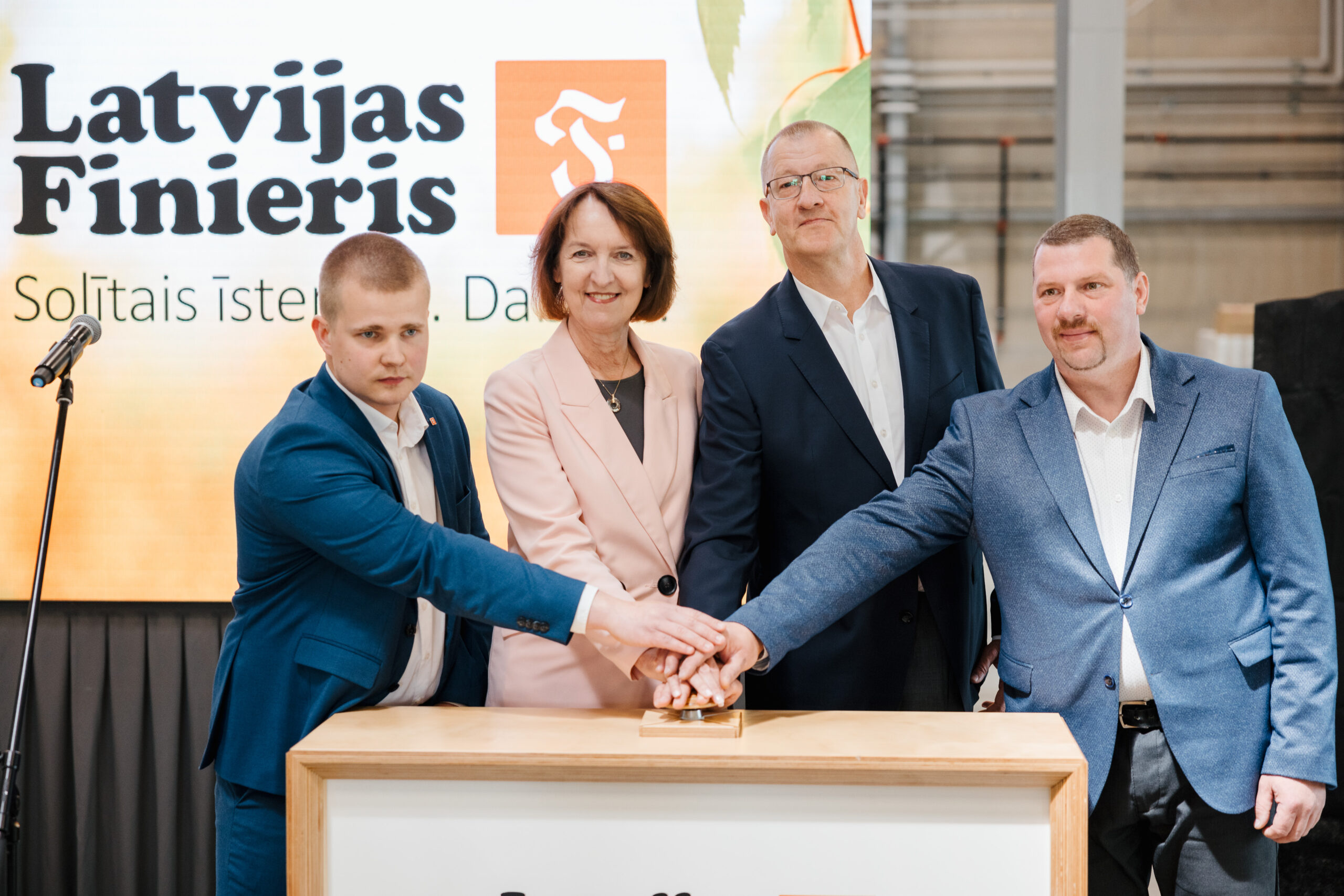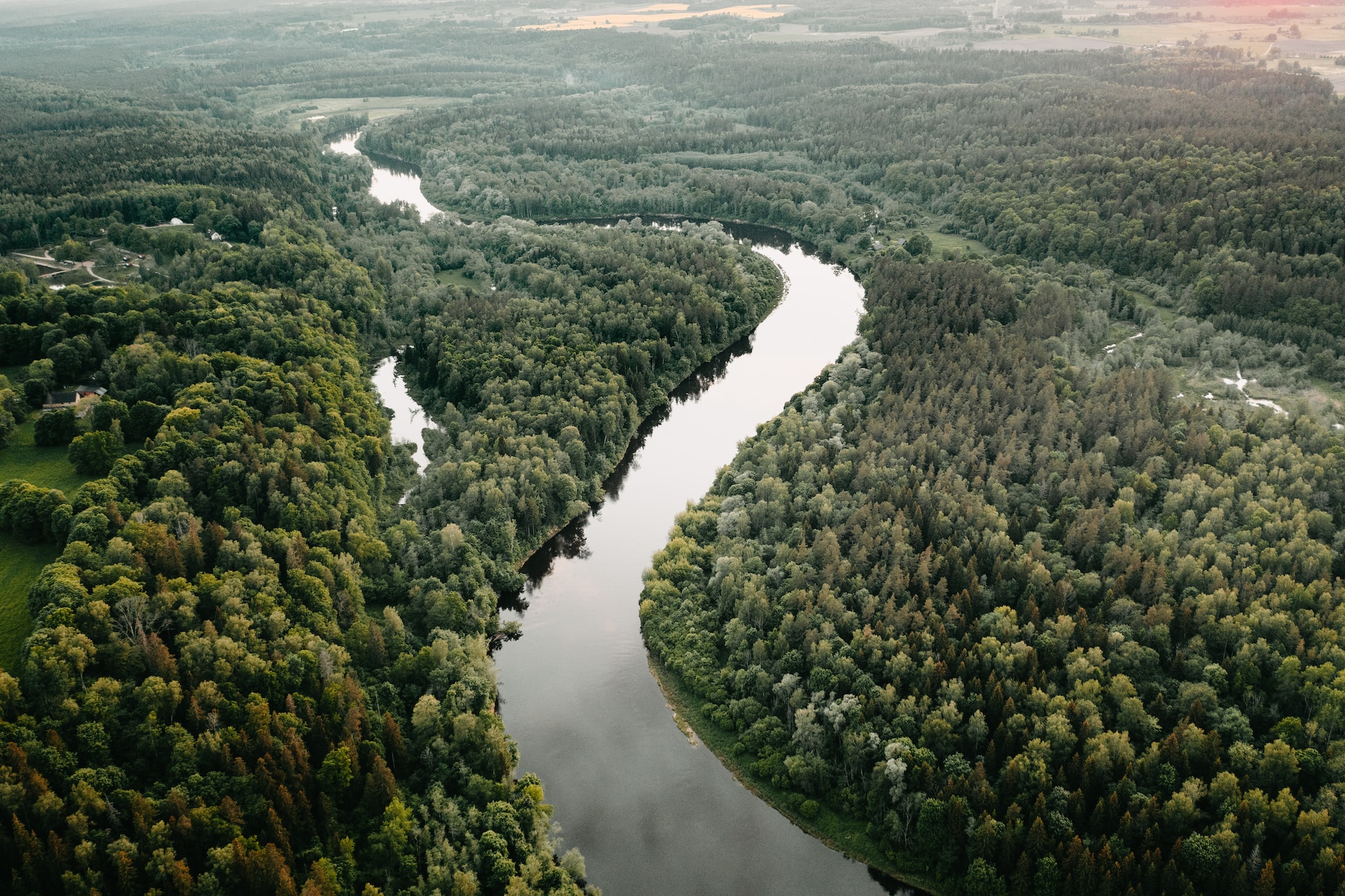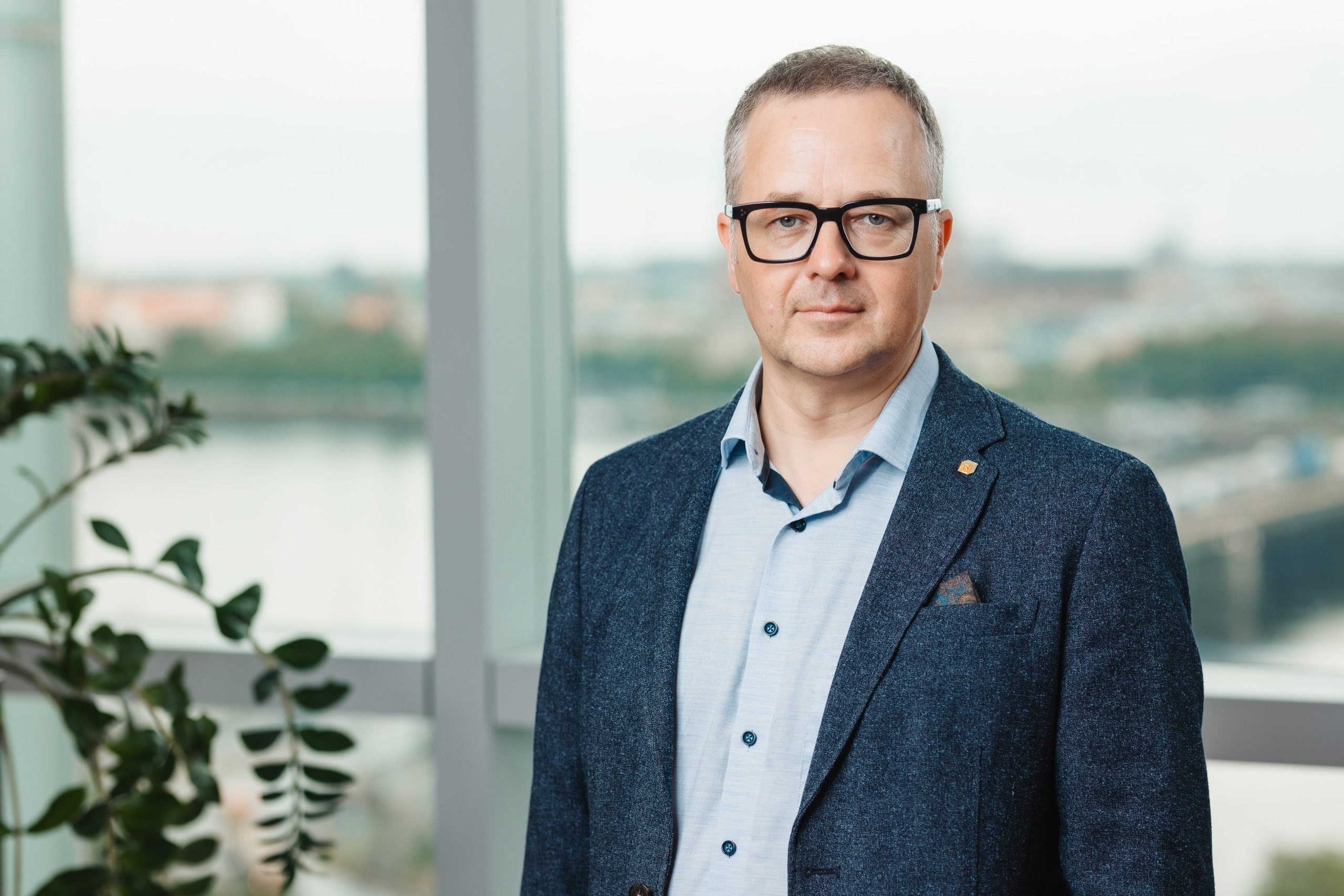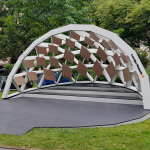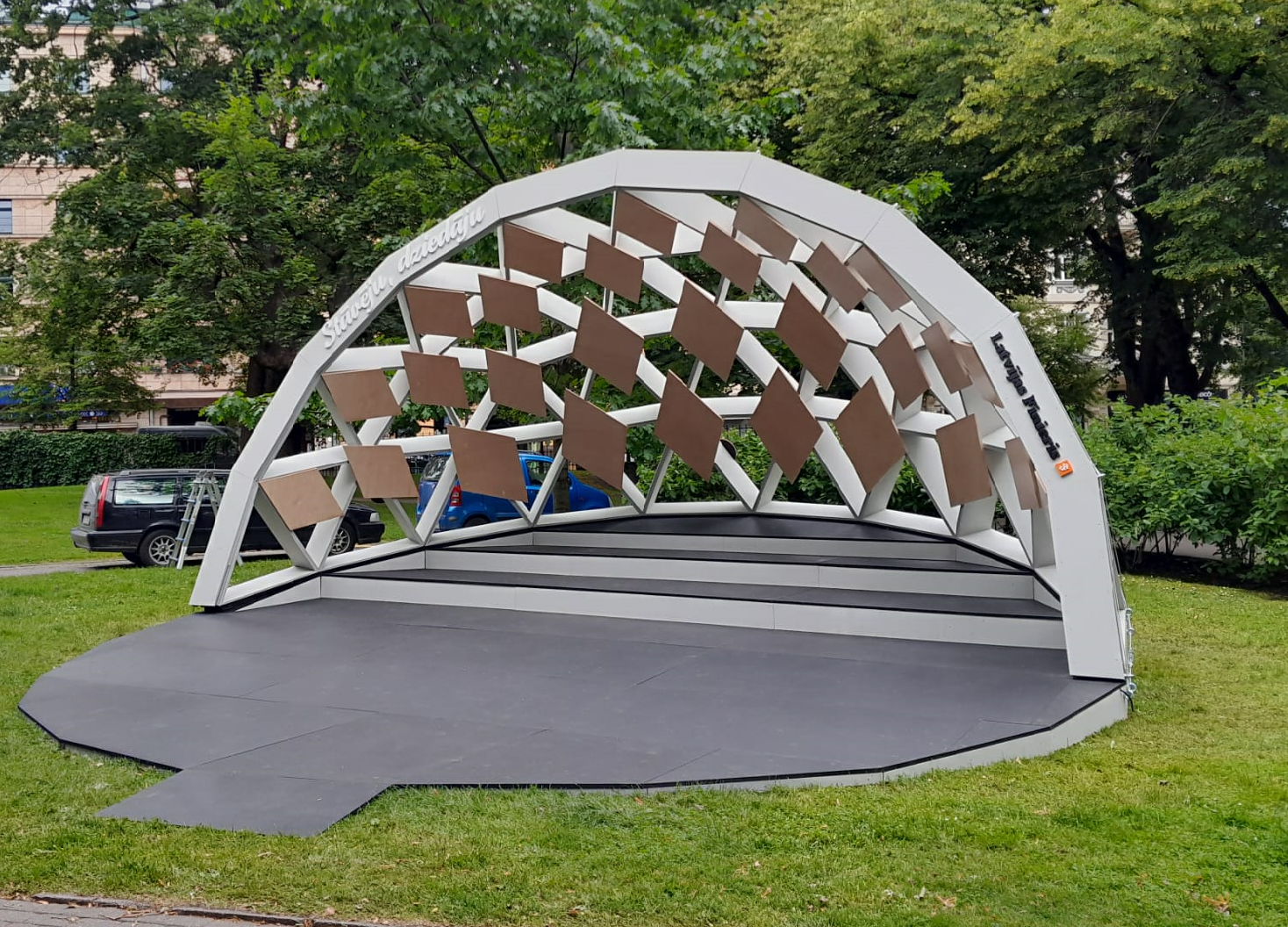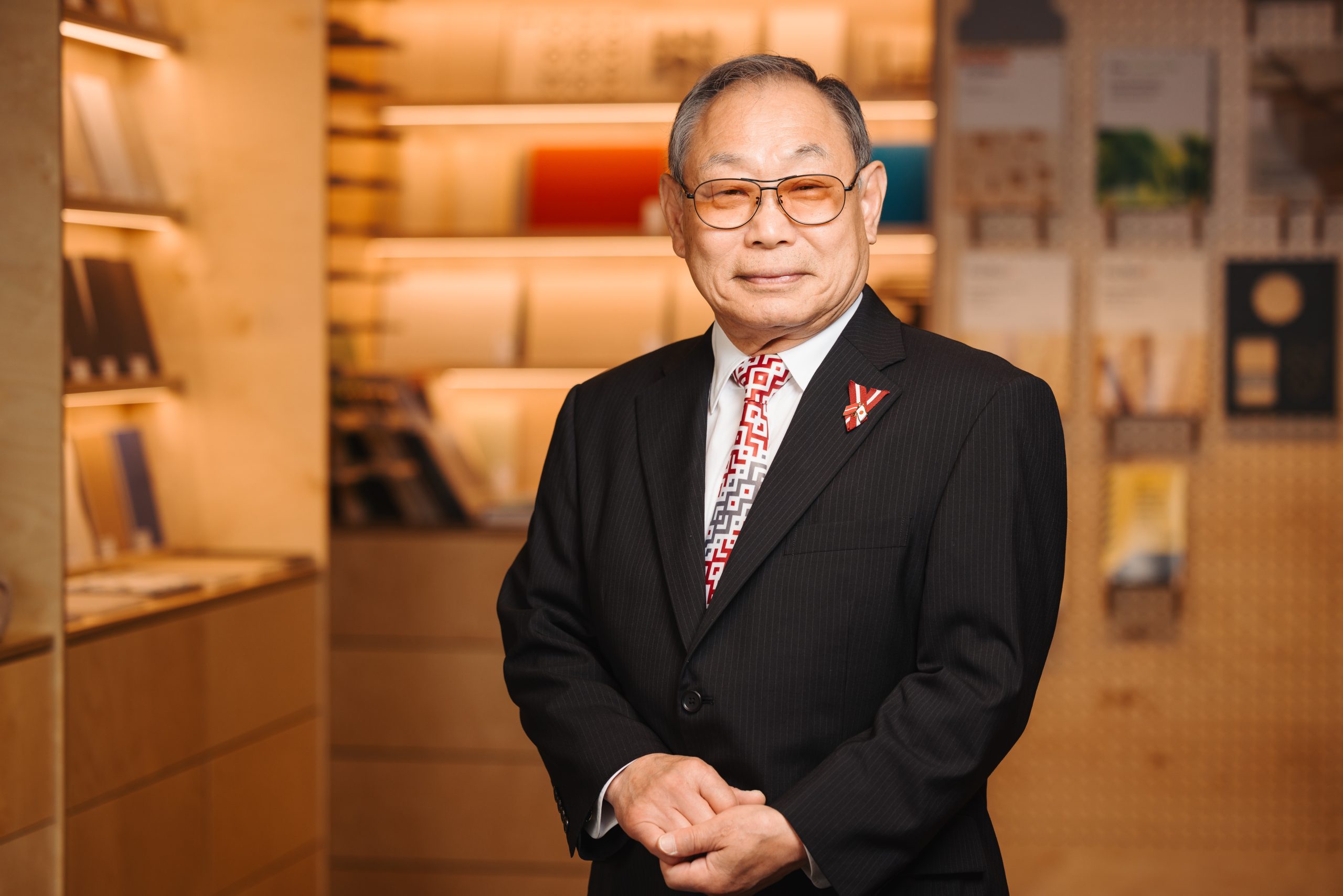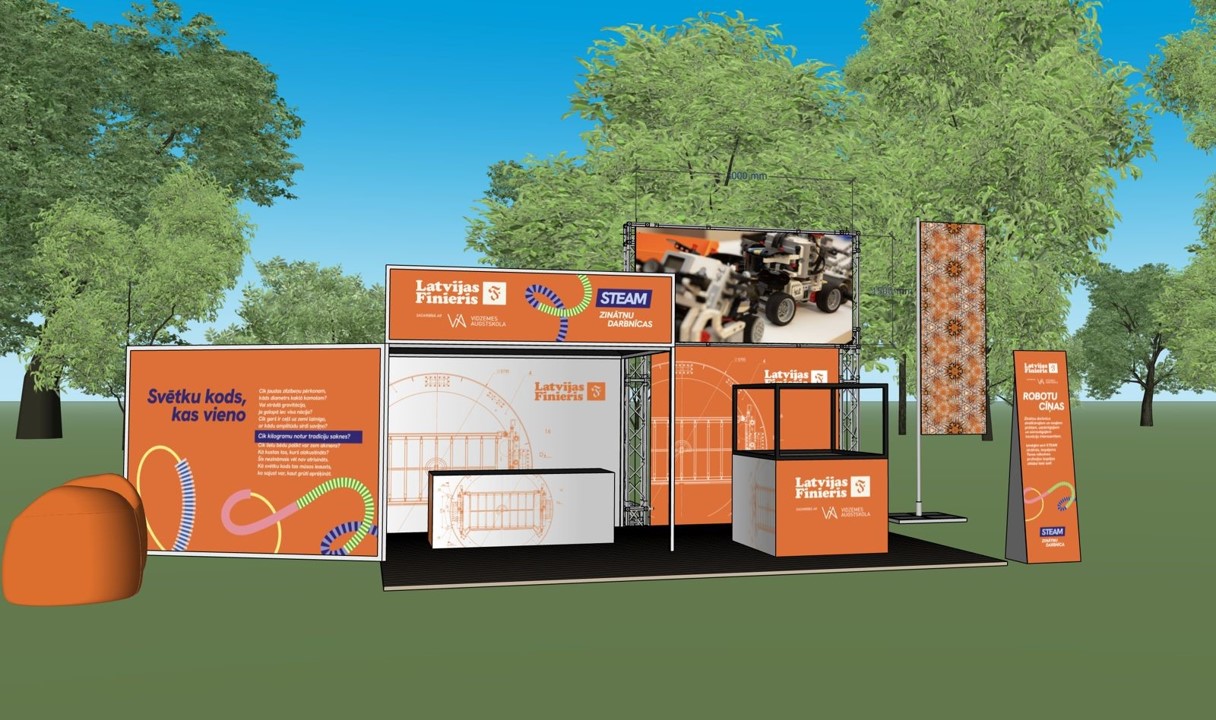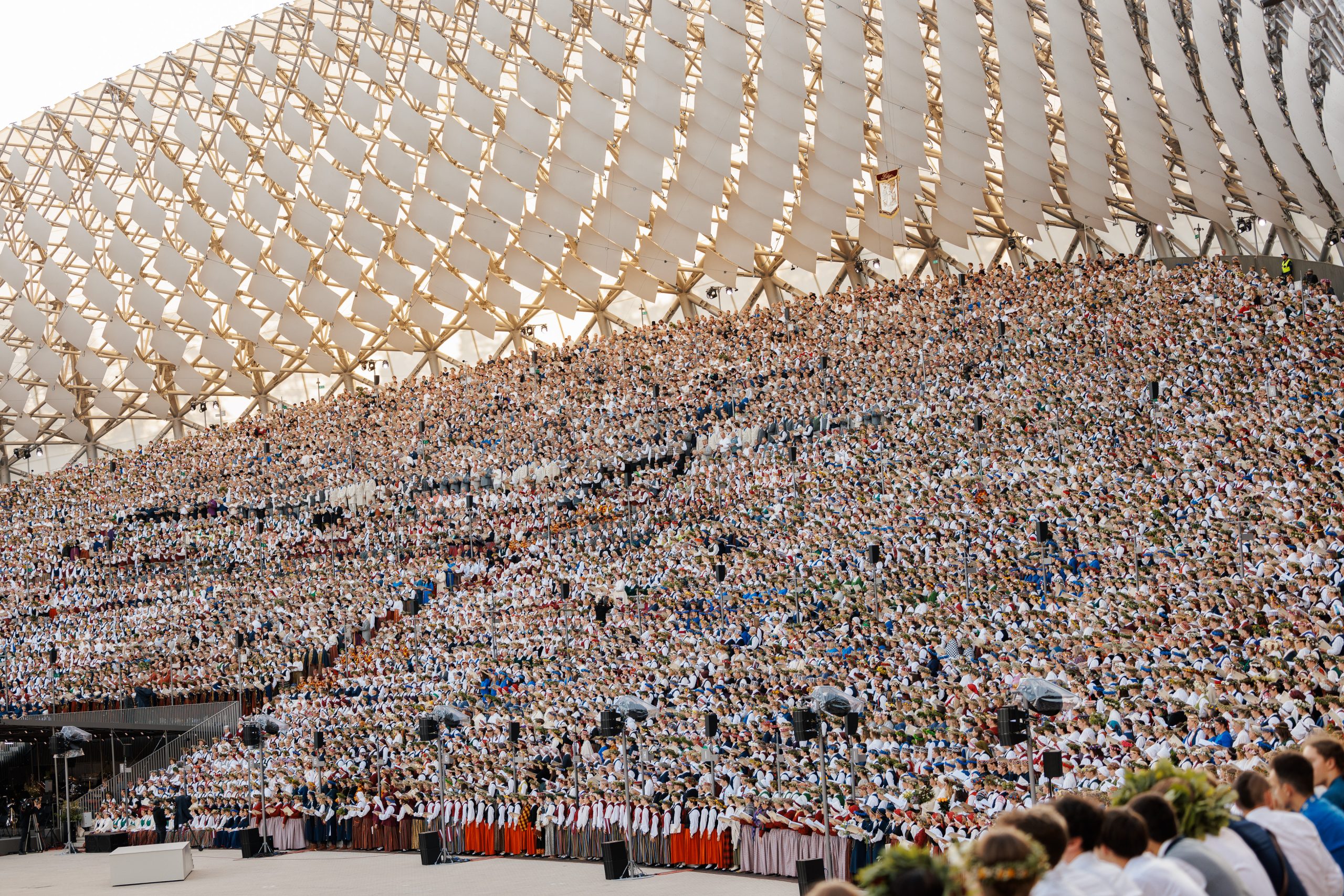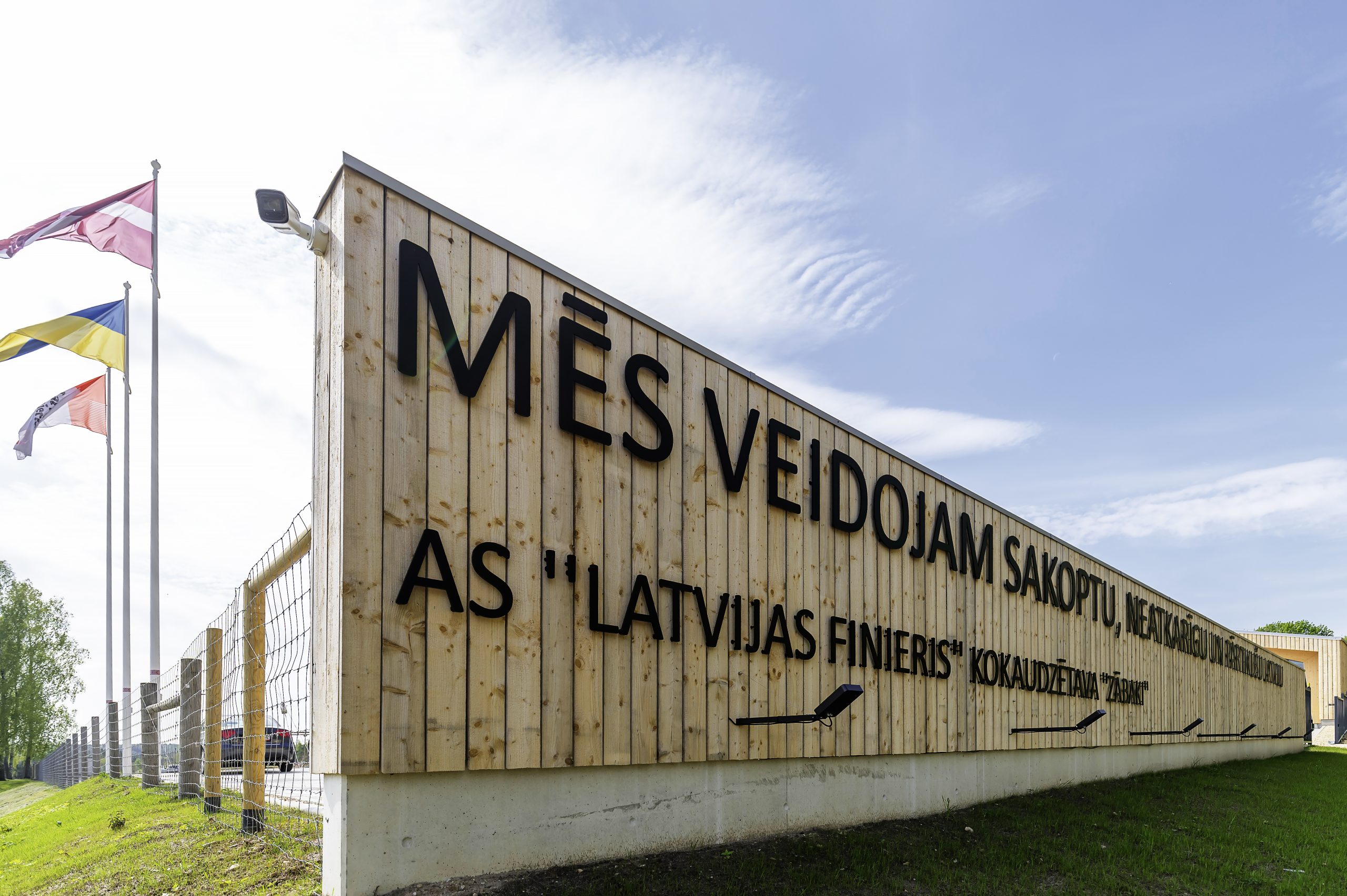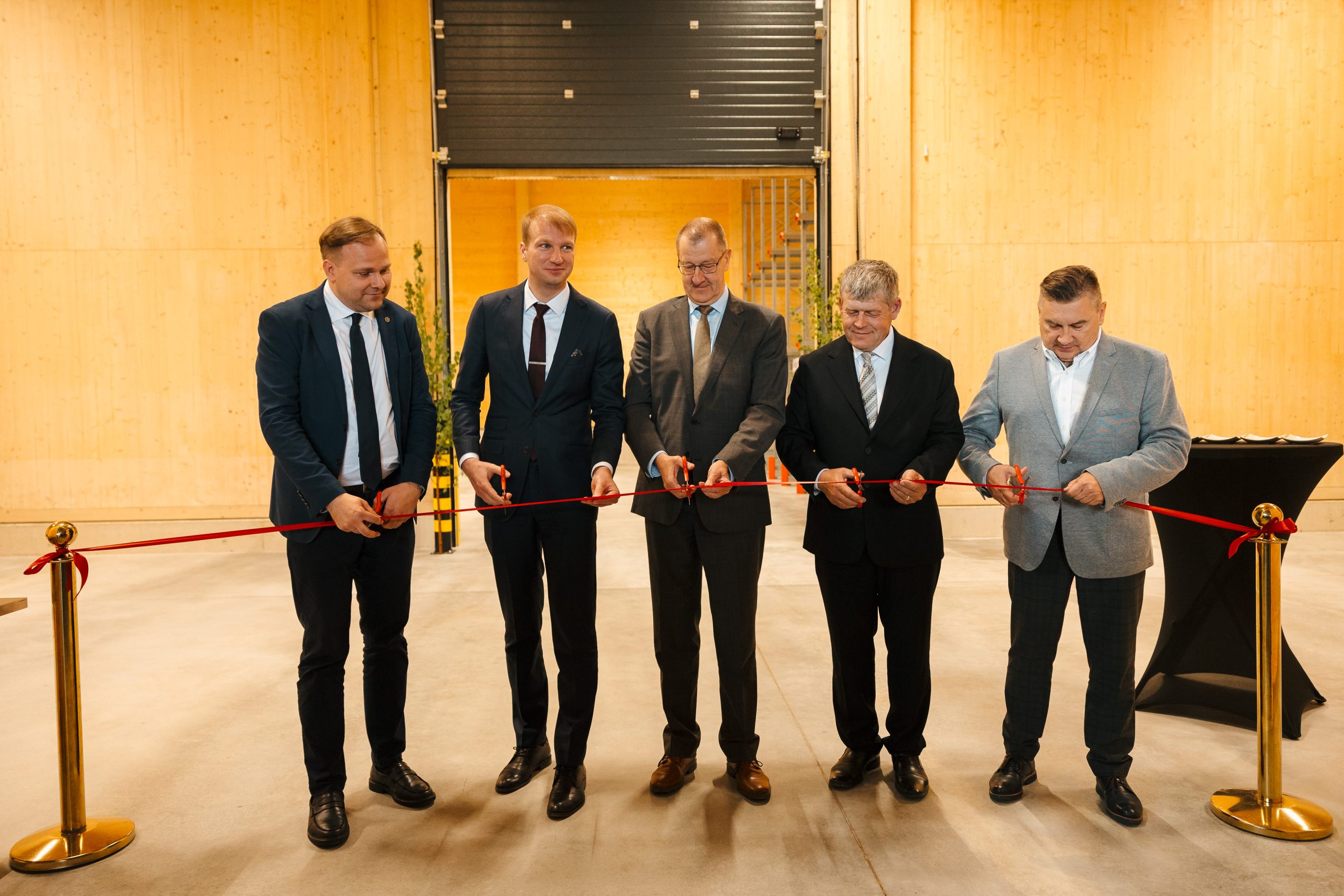Latvijas Finieris: building long-term relationships
18.09.2024
The Latvijas Finieris group is a world leader in the research, development, and production of high added value birch plywood products with plants in Latvia, Lithuania, Estonia, and Finland. Latvijas Finieris products are sold to industrial customers in 56 countries around the world, where individual service is provided by twelve regional Riga Wood product development and sales companies.
“The company’s growth is based on sustainably sourced wood resources from European Union member states in the Baltic Sea region and on generations of knowledge in the production of birch plywood,”
says Mārtiņš Lācis, a member of the executive board at Latvijas Finieris.
Road transport, construction, water transport, air and rail transport – these are just some of the industries in which, due to its unique physical properties, Latvijas Finieris birch plywood is an essential industrial raw material. An example that best illustrates this is the use of birch plywood produced by Latvijas Finieris in the insulation panels of tanks on liquefied natural gas (LNG) carriers. Due to the ability of birch wood to withstand extremely low temperatures (it’s -162°C inside an LNG tank), birch plywood is the only material certified for such use. In addition, there are only four companies in the world certified to service this sector, which is extremely demanding in terms of quality.
“The birch is a unique tree. Especially if it has grown in a northern climate,”
says Lācis.
“Birch wood has a uniform texture, which is why it has long been used to produce a variety of high-quality products. The most technologically versatile of these is plywood, whose physical and mechanical properties, weight, and durability give it a number of advantages over hard materials as well as plywood made from other species.”
Most often, when we see a ship or a lorry driving by, walk across a parquet floor, enjoy the artificial tiles in a bathroom, or attend a large-scale event such as the Olympics or a rock concert, we do not see or realise that the structures are based on Latvian birch plywood. But in fact, this material is present at every turn in our day-to-day lives; it’s just that it’s mostly hidden from the eye. Birch plywood is an ‘invisible’ material that we can hardly live without. But those who use it know that Latvijas Finieris provides its customers with complex birch plywood product solutions tailored to their unique needs and adds value throughout the supply chain. The company’s birch plywood is currently shipped to 56 destinations worldwide, the farthest of which is New Zealand. The value of this product is demonstrated by the fact that Latvijas Finieris sells on average a mere 6% of its birch plywood at home in Latvia.
“The challenge is to guess the future needs of very different customer industries. That’s why we’re looking in depth at various different sectors in which birch plywood is used or could potentially be used in the future. We’re looking for solutions to make our products more relevant to the needs of our customers and in areas they are not yet aware of,”
says Lācis, noting that last year, 31% of the company’s products were registered as modifications or new products.
Investing in the development and transfer of knowledge is one of the prerequisites for successful product development and the growth of the whole company. That is why Latvijas Finieris has over the years established close cooperation with scientific and educational institutions. Lācis continues:
“We’re convinced that plywood products are and will continue to be one of the best and most economically viable uses of birch wood in industry. At the same time, other birch products will also play an increasing role in the development of the bioeconomy, which is why we have always looked for new applications for birch wood.”
Especially because, in this complex production process, only about 2/5 of each log becomes plywood. The rest becomes a resource for various valuable by-products.
Lācis also points out that there is, and can be, no waste in the birch plywood production process – each unit of wood is responsibly sent for further processing, both locally to Latvijas Finieris group subsidiaries and to partner mills and production units. In close cooperation with Latvian, Nordic, and European scientists, in recent years a number of significant practical steps have also been taken in the research and development of chemical wood processing products and technologies. One of the most visible of these is the Betulin Lab pilot plant for the extraction of birch bark extracts. The best known of these substances is biologically active, antibacterial betulin, which has potential in pharmaceuticals, cosmetics, and the food industry. Anyone interested in learning more is invited to visit the Pharmacy Museum in Riga and its exhibition devoted to betulin. Latvijas Finieris will continue to explore the unique value of the birch tree, giving it the opportunity to continue its life after the forest as diversely as possible.
A sustainable approach has for decades been an integral part of the business and culture at Latvijas Finieris: caring for the environment, nature, and society. This is manifested in its actions today and in thinking about the legacy it will leave to future generations.
For example, the wood used in plywood products comes from responsibly managed forests in the Baltic Sea region of the European Union. For many decades, Latvijas Finieris has produced much of the glue used in plywood at its own Chemical Production Unit. In close cooperation with industrial partners in various European countries, Latvijas Finieris is developing new methods to replace fossil raw materials in the production of adhesives with lignin, a natural component of wood. The Viobond consortium project has also received support from the Horizon 2020 European research and innovation programme, which means that these common goals are highly valued.
“We’re aiming to develop an adhesive formula that’s as free as possible from fossil-based ingredients,”
says Lācis, embodying the hopeful outlook in which bio-based solutions will play an increasingly important role in our everyday lives.
Sustainability issues are relevant to producers across Europe from various different perspectives, and one of the most important of these is the availability of wood resources over the coming 15 to 20 years, their use in the long term, and the use of wood products in energy, pulp production, and chemical processing. This is particularly important in countries where forests and related industries dominate the economy and are important for the general well-being of society. In implementing the European Green Deal, decision-makers have a responsibility to design effective land-use policies that balance the interests of the environment, society, national development, and businesses.
Of course, birch is not the only species of tree from which plywood is produced. The European market both imports and exports large volumes of various plywood products, and producers across Europe are feeling the effects of geopolitical events as well as economic stagnation. Even before the outbreak of the war in Ukraine, European producers were suffering from the dumping (trade at unreasonably low prices, a form of predatory pricing) of Russian-produced birch plywood. In recent years, Latvijas Finieris and other European producers had been forced to reduce production, close production facilities, and halt investments in development.
“To protect European Union producers against unfair trade practices, anti-dumping duties were imposed on Russian birch plywood products in 2021,”
Lācis explains.
“In 2022, when Russia invaded Ukraine, the European Commission imposed tough sanctions on the aggressor, barring all wood products produced in Russia and Belarus from entering Europe. This had a significant impact on their wood industries, as important European markets were lost. But the consequence is that Russian and Belarusian products are now sold outside Europe at inadequately low prices, while European producers in these countries are losing their competitiveness and are forced to reduce their sales or leave certain markets altogether.”
“However, the most worrying fact is that birch plywood from Russia and Belarus is still entering the European market, including Latvia, but with the country of origin changed,”
Lācis continues.
“In 2023, the volume of plywood of highly questionable origin on the European Union market amounted to almost 20% of the total volume.”
In response, the European Commission carried out further investigations and this year imposed additional anti-dumping duties on birch plywood imported from Turkey and Kazakhstan.
“In its everyday operations, Latvijas Finieris actively advocates for fair competition and European values, which is why we have severed all direct and indirect trade ties with aggressor countries. Yes, immediately after the outbreak of the war, this posed a major challenge in the case of certain chemical raw materials. But at this point in time, our group feels secure,”
Lācis emphasises.
“Of course, we’re cautious, but we’re also confident about the future. Our development and growth strategy in market diversification, product development, and long-term customer relationships allows us to continue to produce products in the current environment, provide jobs for our employees, and invest in development.”
Latvijas Finieris builds long-term relationships based on respect, professionalism, and mutual trust with its approximately 2300 employees worldwide as well as its business partners around the world.
“We’re trusted and believed in – both by our employees and our business partners, and this is our company’s greatest brand value,”
says Lācis.
The group’s parent company, AS Latvijas Finieris, is a joint stock company owned by 579 non-controlling shareholders, the majority of whom are current or former employees of the company. This largely ensures the growth of the company and professional, long-term decisions for sustainable development that are based on diverse competencies, involving all employees of the group as much as possible.
“Geopolitical events and the economic situation highlight our responsibility not only for the well-being of our employees and their families, but also in relation to the growth of the economy and the security and peace of society,”
concludes Lācis.
“We have supported Ukraine and its people from day one; we want peace and democracy to prevail in Europe. Looking to the future, we’re confident that the professional team at Latvijas Finieris is capable of driving and sustaining the long-term growth of the company in a safe and democratic environment, and that is our task.”
